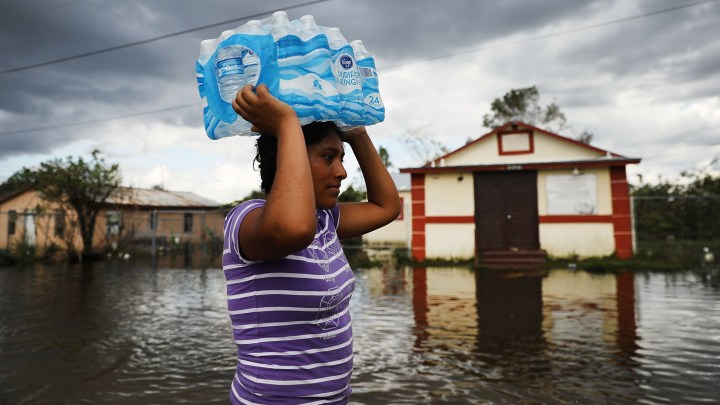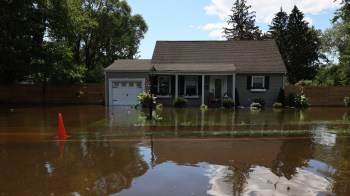
Florida’s new governor brings a new approach to climate change
Florida’s new governor brings a new approach to climate change

Communities in Florida, one of the states most vulnerable to climate change, are grappling with erosion and loss of property. In a break from recent precedent, the state’s new governor, Ron DeSantis, is not only acknowledging climate change, but is willing to pay to help communities that are affected.
At Satellite Beach, situated on a barrier island between the Atlantic Ocean and 156-mile Indian River Lagoon, there are already plans to move the fire station and other public buildings to higher ground. City manager Courtney Barker says the community also would consider buying out vulnerable homeowners, but doesn’t have the money.
“Our yearly budget is $12 million, and so we’re just not in a financial position to be able to do that, and that’s why you need a state fund for those types of things,” she said.
Under former governor Rick Scott, Florida state employees said — and documents confirmed — there was a ban on using the term “climate change.” Instead of “sea level rise,” employees were instructed to say “nuisance flooding.”
DeSantis is not only is saying the term, he has persuaded the legislature to put $5.5 million toward helping local governments plan for sea level rise.
“This idea of, quote, ‘climate change’ has become politicized. My environmental policy is just to try to do things that benefit Floridians,” he said.
Since taking office in January, DeSantis has announced plans for a chief resiliency officer and an Office of Resiliency and Coastal Protection. Most environmental groups have welcomed his plan, although some say it does not go far enough. Frank Jackalone of the environmental organization the Sierra Club, for example, says the plan doesn’t deal with emissions.
“He [DeSantis] needs to get on the bandwagon for movement toward 100% clean energy that will stop pouring all of these millions of tons of carbon into our atmosphere,” he said.
There’s a lot happening in the world. Through it all, Marketplace is here for you.
You rely on Marketplace to break down the world’s events and tell you how it affects you in a fact-based, approachable way. We rely on your financial support to keep making that possible.
Your donation today powers the independent journalism that you rely on. For just $5/month, you can help sustain Marketplace so we can keep reporting on the things that matter to you.


















